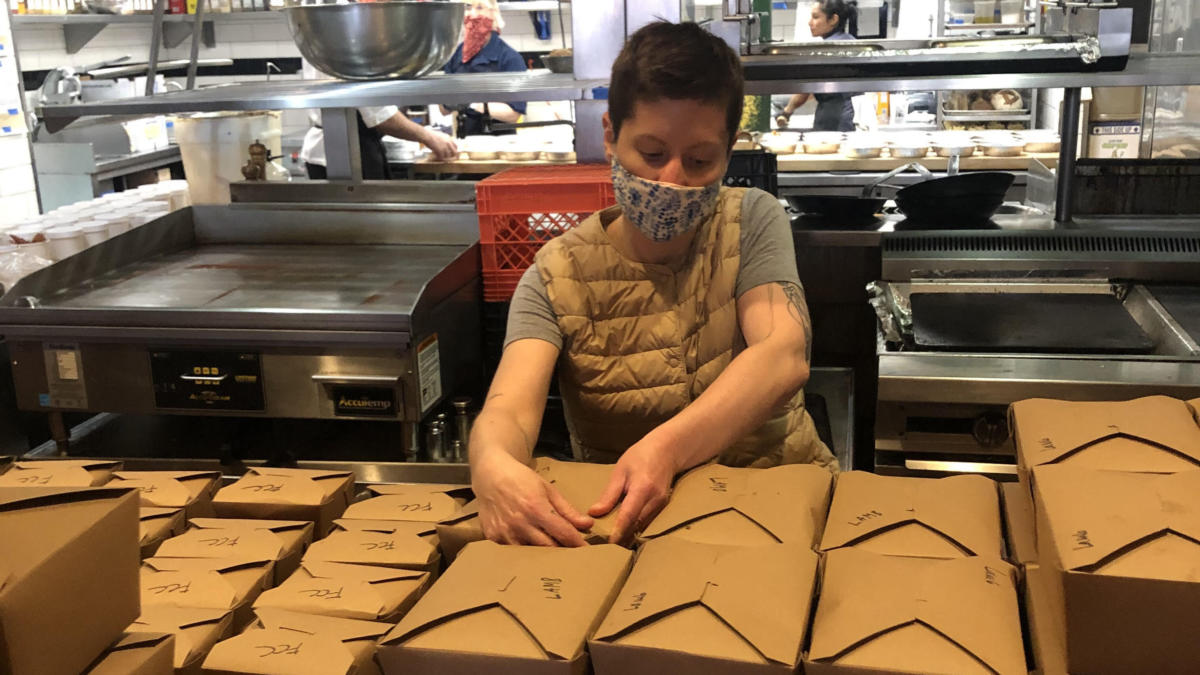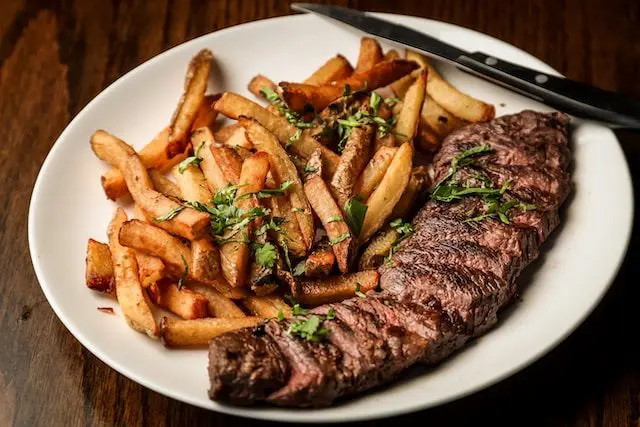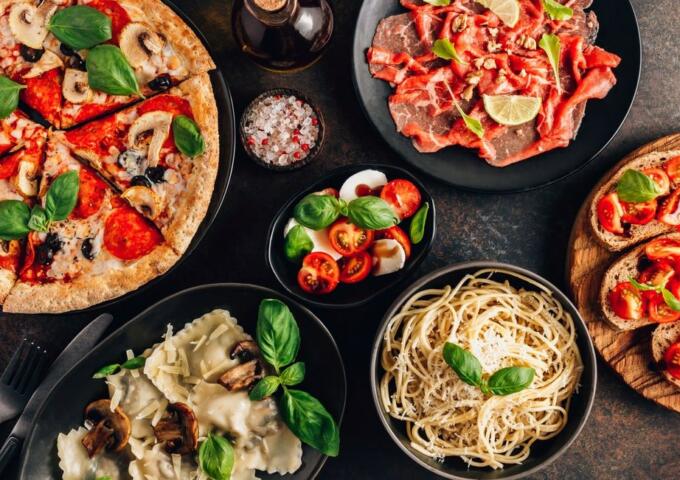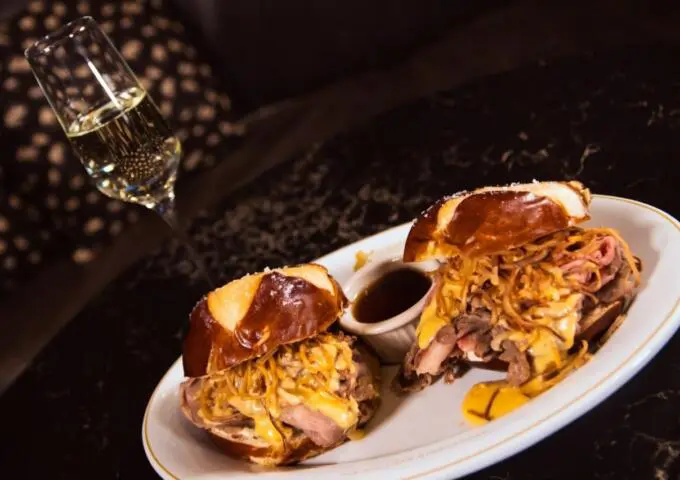To be clear, everything sucks, and everybody is hurting due to COVID-19.
Front and center, there’s death, lingering health issues and the confusion as to how the coronavirus will slow, end, morph or even return. These are global concerns, not a parochial one.
Regarding business in Philadelphia, every sector and every entrepreneur, big and small – save for those who traffic in hand sanitizer, rubber gloves and paper towels, or Etsy craftspeople making quaintly fun masks – is getting killed.
As part of Mayor Jim Kenney’s soul-crushing new budget, there’s proposed elimination of Philadelphia’s Office of Arts, Culture and the Creative Economy – a $4 million cut that would end grants to countless cultural groups and artists – the Philadelphia Cultural Fund (which gave $3 million-plus to community organizations across the city in 2019), as well as trims to Mural Arts, the Philadelphia Museum of Art, and the Art in City Hall program.
Every business is pummeled by this pandemic. But. Everybody eats.
In Philadelphia – a town in the throes of a culinary charge and an ever-increasing, culturally diversifying restaurant renaissance going on three decades – everyone eats out. You might not go to a doctor’s office, hit a concert or buy clothes. You may walk, and never ride buses or Uber. You do, though, dine out, whether it’s $40 worth of sashimi, $30 spent at a Mexican food truck, or a stop for a $10 pizza.
Not so much right now, however, as mandated closings and social distance necessities turned this city’s 6,000-plus eateries (according to September’s 2019 estimate from Philadelphia’s Department of Health) and the state’s 26,546 eating and drinking establishments (according to Pennsylvania’s Restaurant and Lodging Association) into empty corridors and ghost kitchens since March 16. That’s the D-Date when Pennsylvania eateries got Gov. Wolf’s order that “mitigation efforts … will now be in effect statewide, beginning at 12:01 a.m., Tuesday, March 17.”
Wolf’s Plan to Reopen Pennsylvania, now, calls for a three-phase approach to lifting social distancing and reopening non-life sustaining businesses county-by-county, for some 20-plus counties, in May. Philadelphia, the state’s biggest and most densely populated county, isn’t even close to ready.
While some restaurants immediately chose to move into masked curbside take-out and contactless delivery, others stopped completely. Some that shuttered considered that the new C-19 plague might be momentary. Other restaurateurs just needed a breath to figure out their next steps.
“We wanted to stop the spread, flatten the curve,” said Nina Tinari of Schulson Collective, where her business/life partner Michael Schulson, chefs. Schulson waited several weeks after March 17 to open hotspots such as Sampan and Via Locusta for take-out and delivery. “We needed to pivot and adjust to the new reality. Now, there’s an increased demand for take-out and delivery as people at home are tired of cooking every night and going to a grocery store has its challenges. Plus, we never did take-out before.”
It looks as if many of Philly’s tonier restaurants waited to get into the C-19 take-out/pick-up game. While Greg Vernick’s eponymous Rittenhouse-area eatery started serving last week, Michelin-starred chef Jean-Georges Vongerichten’s still-new restaurant on the Four Season’s 59th floor of the Comcast Technology Center, Jean-Georges Philadelphia debuted its $75 meal packages on Mother’s Day.
Take-out or no, restaurant businesses are suffering, as – to a person – every restaurateur I spoke with claims the exact same percentage of the drop-off in their business: 90 percent. Some bettered that percentage by moving into the aforementioned take-out and delivery system, heading upward of 50 percent of their one-time sales with often inventive meal packages that put pay into their workers’ pockets and manage to be amazing dining deals.
I joke in my weekly ICEPACK column about Bibou offering plush packages that include foie gras and such, but what they’re charging – even at $70 and $80 – is an incredible value considering the rarity of its menu items and-or the cost to dine in a French home-away-from-home.
No matter what chefs and restaurant owners make from take-out and delivery, no matter the price points, all agree that the intake isn’t enough to sustain; all agree that getting back to previous numbers will take years if a comeback happens at all.
“It’s going to be a case-by-case basis,” said Jet Wine Bar general manager and sommelier Nick Baitzel. “I know a lot of Philly restaurants, especially the BYOBs, operate month-to-month, sometimes week-to- week. Sadly, many places may never recover.”
“Without government support – it can’t,” said Ellen Yin, the owner of Fork and its next-door-neighbor, High Street on Market, when asked how long she and other independent restaurants and bars could sustain. “Take-out business is generating 20 percent of what we need to survive.”
Yes, she and her socially distanced chef and skeleton crew had been selling “roughly 150 to 200 items a day, including bread, beer, pastries, sandwiches, salads, dinner, gift cards etc.” as of a few weeks ago. The cost of buying food and paying rent/mortgage on a dining space the size of Fork and High Street alone, however, isn’t being met by those sales, surely.
All this will hardly change with federal or state guidelines calling for gradually relaxed restrictions after 14 consecutive days with fewer coronavirus cases. Reopening a beach or a park has literal breathing room to the proposition, a social distance stretch bound only by how many fools rush in. Most people though, no matter how bad their cabin fever is, will surely shy from dining or drinking out in spaces no bigger than a living room, in many cases, until vaccines are discovered and implemented.
“I know a lot of Philly restaurants, especially the BYOBs, operate month-to-month, sometimes week-to- week. Sadly, many places may never recover.”
Nick Baitzel, sommelier, Jet Wine Bar
If your favorite restaurant starts taking your temperature or pushing for contact tracing when they take your reservation, as Massachusetts will mandate – where health staff work to make a diner/one-time COVID-19 patient recall everyone with whom they’ve had contact – surely, matters of privacy will come into play. Not fun, right? Restaurants and bars are supposed to be fun, convivial, romantic, sexy, communal, intimate, shared, private affairs. Not places where you take temperatures and question infectious lifecycles. And yet, NOT doing that – adhering to safety demands – is wrong in order to maintain public and private health.
There are issues, too, with restaurants getting necessary government funds to keep them going. As of May 6, the U.S. Department of the Treasury and the PPP – the Paycheck Protection Program – will not lower the forgiven amount of a PPP loan if a laid-off employee declines an offer to resume their job. That’s a good thing. Under the PPP, a loan can turn into a grant if at least 75 percent of the funds are spent on the payroll within eight weeks of being granted. But, the workers have to want to come back.
At least, if the Pennsylvania Senate goes along with the House to approve a bill that allows mixed-drink sales by bars and restaurants that have lost 25 percent or more of their business to go forward, we could have 64 ounces of mixed drinks to go with those curbside take-outs. These sales would be permitted only during the COVID-19 emergency period and time following when a licensee is operating at less than 60 percent capacity.
“Who wouldn’t want a mobile margarita with their guacamole and chips,” asked Nicole Marquis, the doyenne of HipCityVeg and other veg-related eateries. She’s also the woman who drafted the petition – representing 170 area restaurateurs to the state and the city, which asked for:
- Emergency unemployment benefits for laid-off employees (eliminating the four-week delay to receive checks),
- Rent abatement and moratoriums on commercial and residential evictions and collection actions for at least 60 days (a mandated 60-day grace period to avoid defaults),
- Intervention to require insurers to provide business-interruption coverage related to closures that are mandated by the government related to the current health crisis,
- Emergency loans with no or low interest to businesses that are impacted by the government-mandated closures, and
- A state sales tax “holiday” for restaurant pickup and delivery orders, so that restaurants that stay open can compete on an even playing field with grocery delivery services – which are not generally subject to sales tax.
What is the new world order for restaurants and bars after the petition? What is the new world order once they all – well, some, as it’s projected that at least 30 percent of Philly eateries that COVID-19-closed might not weather the storm – trickle back slowly?
I spoke with a diverse circle of local restaurateurs as to what Philly’s restaurant scene might look and taste like. Our conversations were frank, open and passionate.

Nicole Marquis of HipCityVeg, Bar BonBon/Bodega, Charlie was a sinner…
When we spoke, Marquis was marking one month passed since devising a petition designed to portray the local food industry’s woes, against the backdrop of COVID-19, to government officials on a state and city level, and waiting for the curbside cocktails bill to pass.
“We’re counting on more help from the city and state, so if a curbside cocktail bill is implemented soon, that’s better than just serving wine or beer,” she said. “It would be better if we could pay additional staff to deliver mobile margaritas, and bring more revenue to the city. But, it’s still a game-changer. Bars and restaurants depend heavily on the revenue of liquor sales …plus, Philly residents want this.”
What people want – diners, her employees (“they are the most vulnerable”), fellow restaurateurs – is of paramount importance to Marquis. Though she refuses to be a “spokesperson,” she does admit that action is in her DNA, her way of coping.
“I can’t let an industry we took so long to grow, go; we have to fight back,” she said. “We’ve been here for the city for so much – personal and private celebration, to say nothing of paying into city taxes. This city must be here for us, now.”
After having drafted April’s manifesto, Marquis has Zoom-met with legislators on a local, state and federal level about everything from what PPP loans mean, now, and what they must mean after the loan’s initial eight-week run runs down.
As well as mourning for her staff and her sales figures, Marquis is trying to aid those restaurants in Philly who sadly didn’t get the PPE loan.
“They are REALLY struggling to survive. I want to make sure that the restaurants of all-sizes can get heard. Every week we lose tens of thousands of dollars. This is not sustainable. The PPP loan was a lifeline. But. There are flaws – difficult to convert some of the loans into a grant as was intended with the forgiveness provision. Regardless, we need the money to keep doors open. All the restaurants do. We hung on for six weeks barely keeping a skeleton crew on. I had to close two of our nine restaurants. When this hit, our sales plummeted immediately down to 10 percent … we lost 90 percent of our revenue.”
Working 16 hour days, seven days a week Marquis said HipCityVeg and Bar BonBon are creeping up, monetarily, via take-out and delivery, but that 80 percent of their delivery sales are hit with high commission fees through third-party apps. “That’s also not sustainable. I’d have to change my business model entirely to be a delivery company.”
What Marquis is double worried about is where the money comes from next. By May 14, the date of this story, the PPP loan/grant money will be gone. “The PPP loans are designed to spend the money in eight weeks – and we still are at what? 50 percent revenue? We can’t operate with that. What happens then? Do you have to let go of your staff again? When we take the cast off, we’re going to need help again … another stimulus package.”
“A curbside cocktail bill … that’s better than just serving wine or beer,” she said. “It would be better if we could pay additional staff to deliver mobile margaritas, and bring more revenue to the city. But, it’s still a game-changer. Bars and restaurants depend heavily on the revenue of liquor sales …plus, Philly residents want this.”
Nicole Marquis, HipCity Veg on bill for eateries to sell “Cocktails to Go”
This is not even including the possibility that, come autumn, the coronavirus could kick up its heels again and shatter everything. The future, then, is all a guessing game for all restaurants, and not just those from Marquis.
“Not being able to have a full dining room – however many you can hold, safely, then turnover – we depend on that for revenue, staff tips and, quite frankly, ambiance,” Marquis said. “It’s not the same experience when restaurants are half-full. In some of our spaces, if we have to reduce to 20 percent capacity – in some cases, we’re only 1,100 square feet – that’ll mean four or five guests. Add in diners wearing masks, staff in safety garments and having plastic shields between the register and the customers?”….
Marquis trails off, sadly, in an answer to her own question.
Teddy Sourias of Craft Concepts Group (Blume, Tradesman’s, Tinsel, Finn McCools, Bru, Uptown Beer Garden)
On the day outdoor construction in Philly was in discussion to re-open, Teddy Sourias is on the phone, considering his next moves. Sourias’ Craft Concepts Group closed their Center City hotspots at the mandated start of C-19, are only now tinkering with offering take-out at Tradesman’s (“we had a window with a neon sign reading ‘TAKE OUT’ in place before we opened”), and are waiting for the permits to re-make/re-model 17th and Market’s Uptown Beer Garden, “a task we have to take on, fresh every year,” he said.
“We’re in planning mode to open Tradesman’s for take-out, start with barbecue, sausages and wursts, as they’re all made in-house … and Uptown. Weather permitting. What’s great about Uptown is that it’s outdoors, a massive space where we can place tables six feet apart, build longer bars so people aren’t piled up on top of each other five deep at the bar for drinks. They can’t do that anyway. Now, we must do it for – and I hate this term – the new normal. When will it open? We’ll open when the world opens.”
Teddy has been stocking up on Boardroom Spirits hand sanitizer, masks and thermometers (“you can only order one at a time so all of my family members buy them for me”) and not just sitting back, even though, on March 17, he made the decision to sit things out.
“I laid off 300 employees – so hard – the decision wasn’t ours, but, I do agree with it. Questions of revenue? I honestly don’t even want to know. Have we even looked at that number since we completely shuttered?”
Sourias knows the numbers will not be the same for his venues when they reopen. One of the reasons he closed his venues came down to numbers.
“Our business is based on crowds, revolves around asses in seats,” he said. “All of our places hold hundreds and hundreds of people. Uptown Beer Garden? We can do thousands of people on a Wednesday night. Can we do that anymore? No. Not only because of the restrictions… it’s just not what we SHOULD be doing right now.
Also, we can wait out the summer. September on, that’s our busiest season. That’s when I need my business to be its strongest. COVID-19 can’t come back again like they say it might in the fall.”
While Nicole Marquis is concerned about getting a second wave of PPP funding, Sourias is worried about the pandemic’s possible wave. “Feed people curbside. Stick to the restrictions. If the world just re-opens NOW and we allow people to just crowd around each other again, what do you THINK will happen? It’s not good.”
Also not good: Sourias’ enterprises did not get PPP help.
“I got approved, but have not yet received anything,” he said. “The numbers are weird. I know we didn’t get the Philly grant for $25,000. I got denied – all my business. I do know, though, with the PPP, that I have to bring back like 75 percent of my employees. What do I do with them, though? I can get a small team together for take-out, but that won’t be forgiven on the loan. I wish we had solid answers as to the end result of loan forgiveness.”
Regarding making his spaces into take-out joints, Sourias thought it would be easier for diners to just order pizza than it would be to find him and order knockwurst. Now, people have ordered everything else over and over, and they’re ready for something new.
“That’s why Schulson waited,” said Sourias. “So, my chef is putting together menus. We can do the Bru menu as well as Tradesman’s, like the smoked tacos. We’ll see what sells. Assuming the curbside cocktail thing comes through, I can get bartenders back on. Our menu is unique. This should work.”
As for the long game of the future, Sourias isn’t exactly keen on how things could work or look.
“I got approved [for a PPP loan], but have not yet received anything…I do know, though, with the PPP, that I have to bring back like 75 percent of my employees. What do I do with them, though? I can get a small team together for take-out, but that won’t be forgiven on the loan. I wish we had solid answers as to the end result of loan forgiveness.”
– Teddy Sourias, Craft Concepts Group
“Desolate,” he snickers. “My places are big. We’re going to do it, but, it’s going to look like a bad lunchroom in a high school. The way we can combat that is – say at U-Bahn and Kontrol, our private lounge and club spaces beneath Bru – I’m keeping the same amount of tables we have, distance them appropriately, and warm up the space. Flowers on tables with candles for the ones not in use, just as we do the tables in use…. As if there are people there.”

Marlo Dilks of SliCE and P’unk Burger
While many Philly restaurants struggle with take-out, delivery and making money, Dilks not only has a different take on the Philly take-out economy; her SliCE and P’unk Burger are actual success stories throughout the COVID-19 continuum.
“Overall, as a company, take-out is the largest part of our business,” she said. “Per store, for SliCE, it’s take-out and delivery of not-super-gourmet, but middle-of-the-road-gourmet pizza. At P’unk, it is – or was – the opposite, as it’s a dining room concept.”
When dining rooms in Philly shuttered, the 5-year-old P’unk Burger on East Passyunk not only started offering curbside take-out, it got pulled into Dilks’ well-honed delivery system with its huge delivery team from SliCE’s locations. “I was able to move people around from SliCE to P’unk delivery while keeping SliCE strong,” said Dilks. “We’ve been fortunate.”
Her push for curbside pick-up at P’unk has been odd, as she, like me, agrees too many young people on East Passyunk refuse to wear masks. “It’s mandatory to wear a mask when you come inside, but, you still get people who come in and breathe on you – I have an employee with me for five years that’s pregnant and I’m not letting anything happen to her.”
Dilks also looks out for P’unk employees by placing barricades two feet from the door so customers can’t come further, and has shifted servers into becoming “more like cashiers – instead of taking orders at a table, they’re taking orders on the phone. Milkshake makers and bus people now deliver food. Plus, I’m paying people more because you have to. They were living off tips before COVID-19.”
Dilks said she also was an avatar for SliCE and P’unk Burger delivery being contact-free.
“Before it became a thing, we were doing contact-free because a customer asked if we could – they order, pay, put tips on the credit card, and we just drop it off at your front door.”
An old hand at the take-out/delivery game, Dilks, despite the success, did watch her restaurants drop in revenue during the first two weeks of pandemic madness.
“That’s when people stood in supermarket lines buying five gallons of milk and pounds upon pounds of food, only to become frantic as they had to drink all that milk and eat all that food. As soon as that was done, they were ready for take-out, so we’re back to 100 percent. People are finding a new normal routine. The biggest difference was, to get to this point and beyond, we had to enable third-party delivery websites – GrubHub and Uber Eats.
We deliver with our own staff, but they send us the orders. We had to partner with them to get the word out because now there are so many places who never did take-out before doing take-out, so people are treating the third-party apps like a cafeteria – I walk in. I know I’m hungry. What’s for dinner? That’s going to be the future for a while. No hazmat suits or plastic guards. Just masks, gloves and not breathing on each other during take-out or delivery.”
Benjamin Miller of South Philly Barbacoa, Casa Mexico
These neighboring Mexican restaurants on Ninth Street in the Italian Market from Chef Cristina Martinez and husband Benjamin Miller are renowned for their dedication to the cuisines of Martinez’s origin story, a story ripe will politicized elements of the undocumented worker in America. In a fashion, Martinez and her crew could feel unsafe in their own adopted homeland, as well as unmoored by C-19, if it wasn’t that they are so welcome here. But the struggle continues as some undocumented workers are forced to stay away from work due to the nature of the quarantine.
“South Philly Barbacoa has remained open, Saturdays and Sundays for pick-up only, take-out packages, with barbacoa, tortillas, consome and fixins,” said Miller. “Casa Mexico reopened five weeks ago, and Cristina’s food there is reminiscent of the guisados she was cooking at El Compadre. Different stewed meats served with tortillas, changes daily. We are hosting chefs doing pop-up take-out menus. Casa Mexico is doing curbside pick-up, and we have been able to accommodate serving the customers one by one. All of our teams wear masks and gloves, and our staff has been greatly reduced. For the first several weeks of the shutdown, we worked at Barbacoa with no crew at all to do the preparation. For our undocumented staff, I created a GoFundMe, for those who will not qualify for any stimulus check, unemployment, or loans through the government. Our generous customers donated over $13K of the original $6,000 we asked for, and we were able to hand out envelopes in time for people to pay rent.”

Derek Gibbons of Glu Hospitality (Vesper, Vesper Dayclub, Leda and The Swan)
“Yeah, we’re definitely losing tens of thousands of dollars per week – down 90 to 95 percent – so that’s accurate,” said Derek Gibbons, matter-of-factly, about losses his saloon-spaces are incurring. Though known primarily as a nightlife purveyor (he’s losing drinkers and paid bodies on the parquet floor; cash dollars even tougher for him to make back, no matter how many congressional container cocktails he might sell curbside) Gibbons’s Vesper actually is home to one of the hottest brunches in the city – Sundays packed with millennials chowing down on cheesesteak hash and avocado toast.
“Ramping up take-out food concepts has been a challenge, as it’s nothing we had in place,” said Gibbons. “But, we got beer and wine take-out together quickly, and, as we do a popular brunch at Vesper, we created packages people could pick up at weekends with breakfast sandwiches and champagne.”
Ramping up from scratch is one thing, but Gibbons’ Glu and Vesper are taking on another challenge by launching Hunnie’s Crispy Chicken as part of a take-out roll-out.
“We talked about doing something with chicken because our chef just does fried chicken so well,” states Gibbons. “But, as a club scene, food’s not always a focus. We had the bones of an idea, PARDON THE PUN, pandemic hit and this allowed us to put flesh on the bones…have it come to life.” With that, Hunnies is sold at VesperDay Club’s Center City kitchen for pick-up and delivery.
Audacious to launch a brand around COVID-19, especially since Glu did not get PPP money?
“I know, right?,” Gibbons laughs. “Normally we work in the personal realm – nightlife experiences, us catering to you, whether it’s live or a club-DJ experience. Right now, we can’t do that. Food is what our clients want.”
As for what Glu’s clients want in the future, Gibbons is rearranging floor plans so people aren’t on top of each other and making preparation to sell distancing equipment – gloves and masks – “if customers don’t have them already,” he said in a brilliant bit of marketing.
Eli Kulp, Culinary Director and Founder of High Street Hospitality Group, podcaster
The respected James Beard-nominated Philly chef, famed for his executive roles at Fork, a.kitchen, and High Street on Market – as well as co-founding their umbrella outfit, the High Street Hospitality Group – recently started another culinary-directed gig as a podcaster for the local Radiokismet studio networks “The Chef Radio Podcast.” His view, then, of what will be when it comes to the future of area dining is of utmost import and focused calculated estimation.
“We’re all in the same boat,” he said of Philadelphia restaurants looking to figure out the loans and grants being offered them, and the sustenance of the present. “The rent is the thing that’s killing us most.”
Crystal-balling the topic of Philly’s restaurant future, Kulp imagines that in six months, the government will have to out its trust in “small business owners to do things the right way,” and providing the coronavirus doesn’t explode again in fall, “maintain a program of social distancing,” with 30 to 50 percent of seating opportunities moved or trimmed out.
“Especially where fine dining is concerned, a place like Fork, it’s going to hurt. Where you have multiple courses of food, bussers, people pouring you fresh wine or water as soon as you sip and put your glass down – being well-treated on a night out, being served what you want when you want it – that will likely change. Figure, during any four-course meal, someone is coming up to you, close, at least 20 times. Waitstaff and bussers are doing the same thing next to your table. There are germs on all of those plates and utensils.
“We’re all in the same boat. “The rent is the thing that’s killing us most.”
– Eli Kulp, founder of high street hospitality group
After this, things are going to get very sterile when it comes to the fine dining level – so much so that I’m not sure diners are going to want it. We’ll have to make them feel comfortable. And if that means a pre-purchased meal where you know what you’re getting before you get there, where no server comes to your table too often with wine already opened – which you’ll pour yourself, just as you will water, which will already be on the table – that’s the new normal. You’ll be experiencing the flavors. The service model is what will change.”
Mark Squilla – Councilperson, City of Philadelphia
Mark Squilla represents City Council’s First District, from the Delaware River and his native South Philly, across Center City, Chinatown, Northern Liberties, Fishtown, Kensington and Port Richmond. He literally covers the waterfront and beyond. That’s why when Nicole Marquis and 170 restaurateurs (not all on one Zoom meeting) pursued practical C-19 needs and ideas in a petition, Squilla listened.
“That’s what we need: ideas,” Squilla said frankly. “The restaurants are struggling, but only they know what is most important to them. As businesses start to roll back, we’re trying to figure out what everything will look like – so are the restaurateurs, surely – the only way that the city can help is with their guidance and how they perceive themselves as opening and running businesses within the new norm. If you or they think the government is going to come up with an idea to tell them how to go back to work and do it safely and be approved, we’d all be lying to ourselves.”
Squilla is sympathetic to a business model based on people being close together – “the opposite of social distancing” – in a time of plague, applauds restaurants able to hold it together (“somewhat”) via take-out and curbside pickup, but knows, too, that such is not sustainable for larger scale restaurants.
“My district asks our businesses, “How can you see yourself operating – surviving – with a 50 percent capacity? Can you operate with tables being six feet from each other? Can you operate with one person wiping everything down before, during and after each service and removing menus? What about utensils? How do you waiters interact with people who are dining –iPads on tables and washing them? Will waiters wear masks or plastic shields? That’s the back-and-forth that the city is doing with the restaurants.”
Going forward, be it large scale restaurants or smaller “mom-and-pop” operations, Squilla says the City and its restrictions/laws will have to work with restaurants in seeing new or re-thought business plans through. This may very well include continued take-out and curbside pickup (“maybe in-house dining is less of a percentage than it once was, 60 rather than 100 percent”). He also knows that not every restaurant in Philly can make it through the COVID-19 crisis.
“Many restaurants will not be back,” Squilla said. “We want to keep that to a minimum, and help the folks that remain the best we can … you heard the budget finance meeting – the city doesn’t have the resources to help everybody through it all. Everything is cut. Our initial thing was to get a couple of dollars out there as a Band-Aid until we could get federal stimulus dollars to help our small businesses. So the conversation has shifted: not how much help, but, how can we come out of this, and what do we do once we get out … and how can the city go forward.?”
Lastly, Squilla said there is no crystal ball or concrete plan, even when there is a plan, that much of what will come, restaurants and otherwise, will be trial-and-error “if we’re not prepared for what could happen again with the coronavirus this fall when we have to pull everybody out of work again. It will be devastating. We’ll be going for slow rollouts … we have to be prepared to say one thing, then perhaps have to change course. Every day is a new story. Restaurants and other businesses: there will be no foolproof plan beyond common sense.”





